Six executives share their views on immigration reform, how it impacts business and the outlook for the future. Sam Klomhaus, of the Denver Business Journal asked Brent Boydston, Jeff Wasden, Diedra Garcia, Michelle Warren, Karen de Bartolome and Ali Noorani the following:
Q: What do you think is the first thing that needs to happen to break the immigration reform logjam?
Brent Boydston, vice president of public policy, Colorado Farm Bureau: We are going to need a stronger front of united parties committed to true immigration reform; everything from agriculture, business, law enforcement, religious entities and others willing to tackle this issue together. Then hopefully Congress and the administration will recognize that our current system is hurting America, from businesses to the workers themselves, and they must put aside partisan differences to take steps in the right direction.
Jeff Wasden, president, Colorado Business Roundtable: There is bipartisan support for several of the tenants of immigration reform. Consensus and agreement exists around knowing who is moving and operating within our nation's borders while ensuring the safety and protection of our citizens. There has also been a broad conversation about a simple, user friendly, uniformly enforced employee verification system that ensures a level playing field as well as status of workers within the state.
Finally, industry realizes that our visa, guest worker system is inadequate to fill the needs of emerging, innovative companies looking for highly skilled workers that are vital to our global competitiveness. We need to start with areas of agreement and get legislation passed now.
Diedra Garcia, president, Hispanic Chamber of Commerce, Metro Denver: The Hispanic Chamber believes that breaking the issues into smaller, more manageable pieces where we stand to achieve better consensus a great place to start. We support starting with a more effective guest worker program. The idea is to give the U.S. a steady, reliable stream of labor and professional expertise and bring innovation.
Michelle Warren, Mountain West consultant, Bibles, Business and Badges: Poll after poll shows that most Americans and most Coloradans actually want to see the sort of immigration reforms that a bipartisan group of senators put forward and successfully passed in 2013. This bill would have increased border security, changed our visa system to provide our economy with the workers needed to expand, and created an earned legalization process for those of the undocumented who were willing to pay a fine and work toward legal status and eventual citizenship. The House of Representatives did not take up the bill and despite what their constituencies wanted, allowed it to expire with the 113th Congress.
Karen de Bartolome, executive director, WorldDenver: In the current sticky political setting, the easiest place to get agreement should be simply updating existing non-immigrant categories and quotas for professional and lower skilled workers. These categories are limited in time and in numbers, but the need for this type of labor has grown as our economy has expanded since the present immigration laws were passed. It's like not getting a cost of living increase in your salary for two decades! A few smallish changes in languages for these provisions would make a huge difference to businesses and would demonstrate that the political crowd is listening. And it might pave the way for agreement on other issues.
A second thing that should be done is to offer visas along with diplomas to the thousands of bright, motivated international students whose U.S.-generated higher education could benefit our economy. Other highly developed economies are doing it and we should too.
Ali Noorani, executive director, National Immigration Forum: At the end of the day, immigration is about people. Once people start to realize that this affects their neighbors, their friends, their peers, it puts a face to the issue and really starts to change hearts and minds. You see it all the time.
So far at all levels, the story has been about process and politics instead of people. But immigrants are part of our communities, our families, our lives, and an empathetic human story can temper even the most intense political flames.
Immigration reform isn't about political parties, it's about the fact that our country is suffering under our current system. The broad policy advantages of passing immigration reform are pretty unanimous, we just need to get past the politics and do this for the good of the country.
Q: What businesses are being hurt the most by the lack of reform?
Boydston: Lack of reform is hurting farmers because we are stuck with a rigid, inflexible, H-2A program that does not reflect varying needs of agriculture today. This creates a shortage of skilled labor. For example, to work at a dairy you need very different skills than someone tending sheep or orchard workers. A skilled farm workforce is not about pay; we have members who offer very high wages, but cannot get citizens to apply because of the remote job locations and seasonal nature of farming.
Wasden: Visa caps, which are fulfilled within two days, were put into place 20 and 30 years ago and have not been changed to reflect the growth of current and emerging industries. This is restrictive to core business functions and has to be amended for businesses to stay competitive globally.
Our university system is educating some amazingly talented youth that are forced to leave and join international companies that then directly compete against American companies. We need to continue to train and educate our own students but also get American companies the talent they need to continue to prosper and innovate.
Garcia: The lack of reform is hurting the economy as a whole. Name an industry — agriculture, tourism, engineering, hospitality — is there an industry that wouldn't benefit from a pipeline of ready, willing, able, educated, skilled workers? In terms of keeping our state competitive, in terms of keeping our country competitive, don't we want to be able to access the best and the brightest as a resource? It is getting harder and harder to deny that what holds us back from progress is simply partisan party dynamics. This not only hinders the economy from an immigration reform perspective, but dilutes confidence in our government, which dilutes our strength as a nation.
Many sources say that immigration reform has the potential to generate more than $1 trillion for the U.S. within the next decade. Further, reform would allow for more consumer spending, more tax revenues, and a reliable workforce pipeline.
Warren: I talk with Colorado business leaders in agriculture, tourism, landscaping, construction and others sectors regularly, and all I hear is how they do not have the needed labor force for their industries to be successful and how the current immigration system does not allow for this need to be met.
But, an additional dynamic that I think is sometimes overlooked is the dramatic impact that a legalization program would have on business: if you look at the effects of the last large-scale legalization, under President Reagan in 1986, the wages and purchasing power of those who were legalized increased significantly. With the security of knowing they belonged permanently in the U.S., many purchased houses and began businesses—investing their capital here in the U.S., rather than abroad.
De Bartolome: The lack of provision for year-round (as opposed to seasonal) lower-skilled temporary workers. The rollback of H-1B (professional/technical non-immigrant) visa quotas from 195,000 (2003) to 65,000 (present). The difficulty of obtaining a green card for law-abiding long-term residents. The loss of tax revenues to state and local government from workers who are hired illegally because there is no provision for them to be hired legally. The loss to the U.S. economy of the thousands of international students who would like to start businesses or contribute the benefits of their US education.
Noorani: The U.S. has always been a beacon of hope for the hardworking and the adventurous; for the families looking for a better life, for the entrepreneurs looking to make their own way. And that's the way we would like to stay.
But there are many other countries that are making it a lot easier for people to come there and contribute. Right now, our broken system turns entrepreneurs away, kicks graduates out and relies on undocumented labor. So to compete on the international stage, and retain our legacy of success and innovation, we need to be able to not only attract but keep people here – from the skilled farmworker to the skilled engineer.
Q: Do you think there is any hope of major reform in the next two years, or will Congress remain at a stalemate until the next presidential election is over?
Boydston: The reality is that something needs to happen. Being an optimist I will always hold out hope for major meaningful reform in the next two years. However, I suspect that we will see small, specific changes of immigration reform happen.
Wasden: I am very hopeful that the Republican controlled House and Senate will put forth meaningful immigration reform. Executive action by the President is not the answer. The Republican party has a chance to lead on this issue and create positive reforms that protect our nation and our interests, while helping our businesses maintain their competitive advantage.
Garcia: In our conversations with representatives on both sides of the aisle, we're confident that at least the Colorado delegation understands how important it is to move forward and both seem to be committed to finding a way. We were hopeful that the conclusion of the last election would open the door for a resolution-based debate. Waiting another two years would only heighten the partisanship that currently exists.
Both sides must agree to a strategy of finding areas of common ground, isolate the areas where we can agree and begin there. This alone would start to change the political dynamic and would stimulate further progress.
Warren: I do believe there is hope for major reform in the next two years.
Congress has ample reasons to act on reform as soon as possible—both political reasons, particularly for the Republicans who need to improve their standing with Latino voters, and economic and moral reasons for every American.
My work brings me all over the Mountain West states and the message from pastors, law enforcement and business leaders is the same: we need immigration reform now. To wait another couple of years is not only pointless but dire for the betterment of our local communities and national economic well-being. We cannot let the current political landscape and the status quo of our "do-nothing" approach to politics take away the incentive to work on this issue.
De Bartolome: Hope springs eternal. But constituents need to let their elected representatives know that reform is demanded.
Noorani: There is plenty of unanimous middle ground on immigration. The bipartisan work on the 2013 Senate bill was a clear indication of that. It's really not about policy anymore as much as politics, and too often immigration becomes a political football for the two parties.
The politics that surround the issue certainly present their difficulties, but at the end of the day, the party that can settle this issue for the long term is the party that will get the credit with American voters.
Previously published by The Denver Business Journal


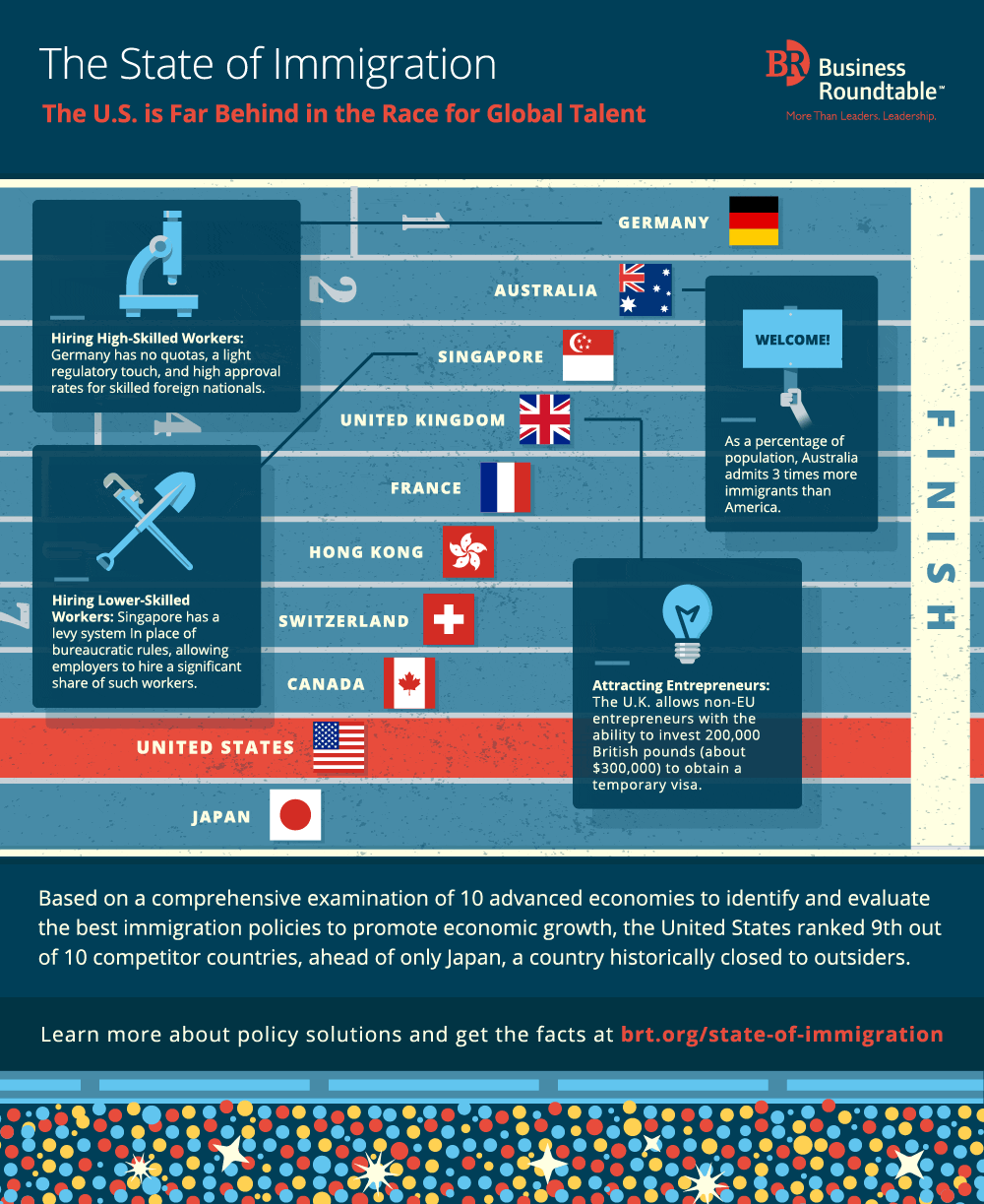
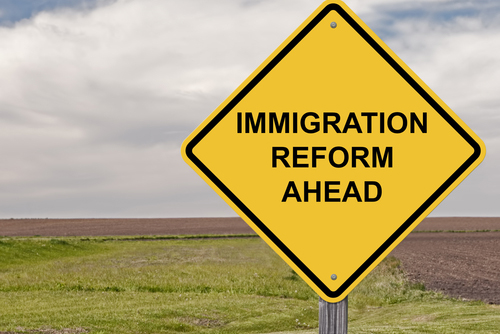


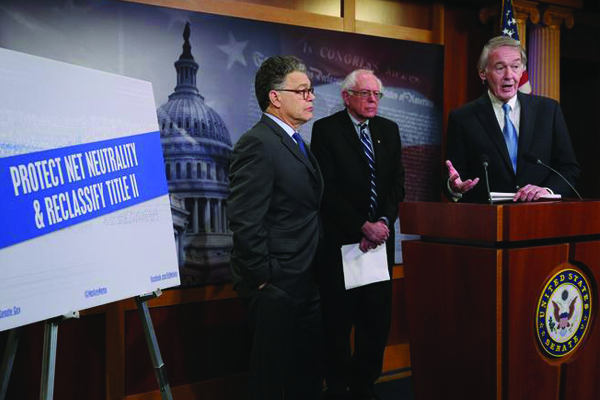








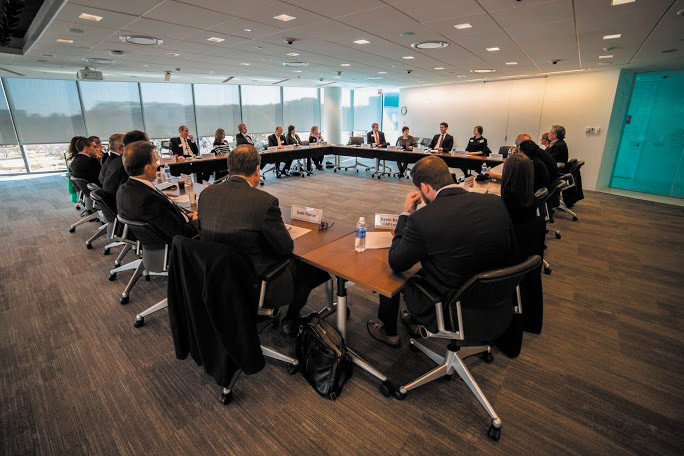 Amid it all was a group of south metro Denver's elected officials, educators and two graduate students, chamber of commerce members and business leaders.
Amid it all was a group of south metro Denver's elected officials, educators and two graduate students, chamber of commerce members and business leaders.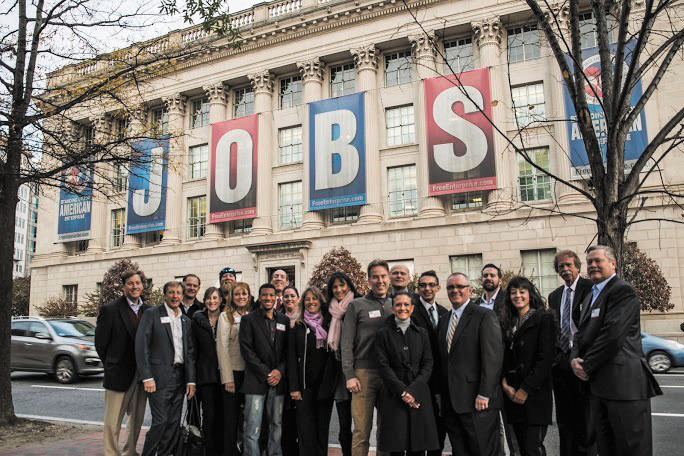
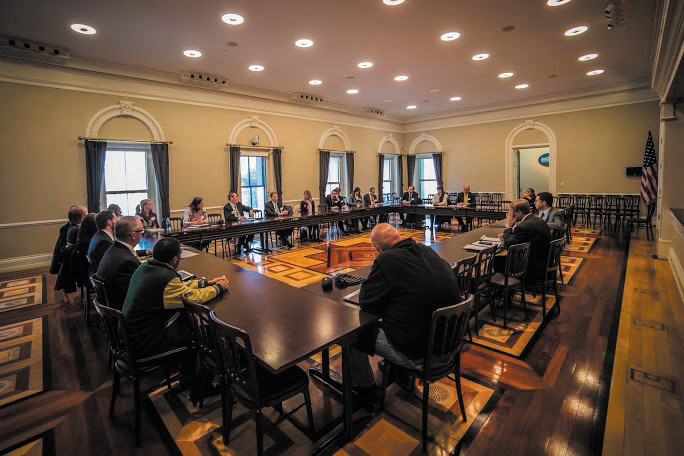 “It went from a five-minute meeting to a 40-minute intimate conversation with him,” Wasden said. “That really provided some of the wow-factor to the trip.”
“It went from a five-minute meeting to a 40-minute intimate conversation with him,” Wasden said. “That really provided some of the wow-factor to the trip.”








